The Fed's aggressive interest rate hike superimposed the severe epidemic in the mainland, as well as the impact of the devaluation of the RMB. The Hong Kong stock market fell sharply, the Hang Seng Index fell 3.73%, and once again lost 20000 points. The Hang Seng Technology Index fell 4.87% to close at 3800 points, and the National Index fell 4.13% to 6684.73 points.

In the market, heavy technology stocks fell, Baidu fell 7%, Kuaishou fell 6.75%, Xiaomi fell 6%, Alibaba, Tencent and JD.com all fell. Big financial stocks, port shipping stocks, sporting goods stocks, automobile stocks, semiconductor stocks, education stocks, biotechnology, inner housing stocks and real estate stocks fell one after another, while China Merchants Bank and Xinhua Insurance took the lead.
Weighted technology stocks fell, with Baidu down more than 7%, Kuaishou down 6.75%, Xiaomi down more than 6%, Alibaba down 5.54% and Tencent down 3.88%.
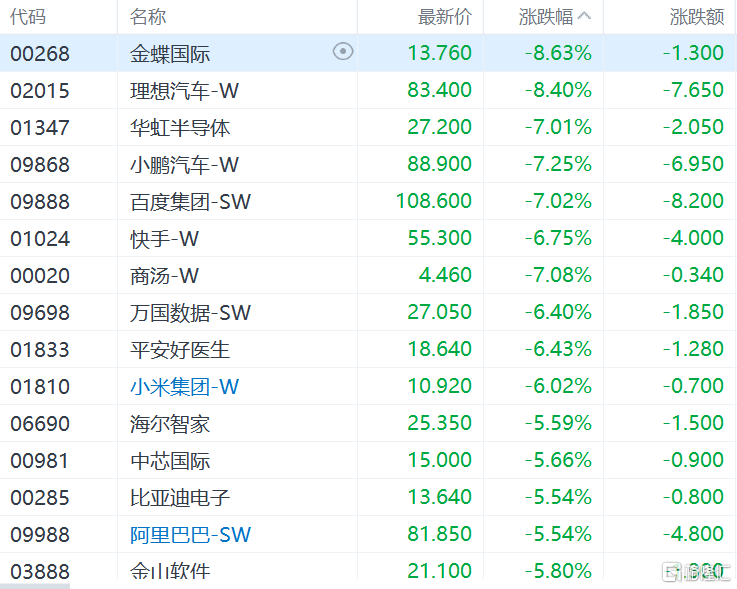
Catering stocks fell sharply, Haidilao fell by more than 15%, Jiaofu fell by more than 10%, Helens fell by 8.78%, and Nai Xue's tea fell by 8.23%.
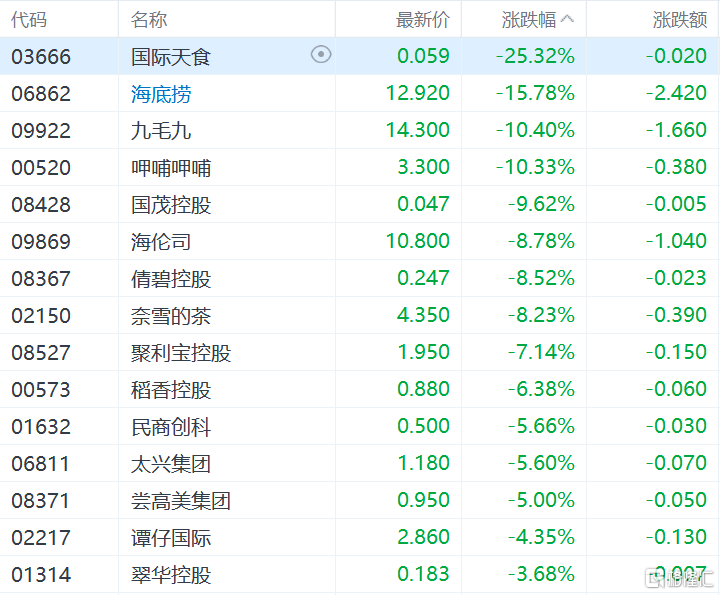
Data show that in March, catering revenue was 293.5 billion yuan, accounting for 8.6 percent of the total retail sales of consumer goods, down 16.4 percent from the same period last year.
Shipping port stocks fell, Cosco Hydro fell 16%, Pacific Shipping fell more than 9%, Cosco Haikou fell more than 8%, and COSCO Haifa fell 3.85%.
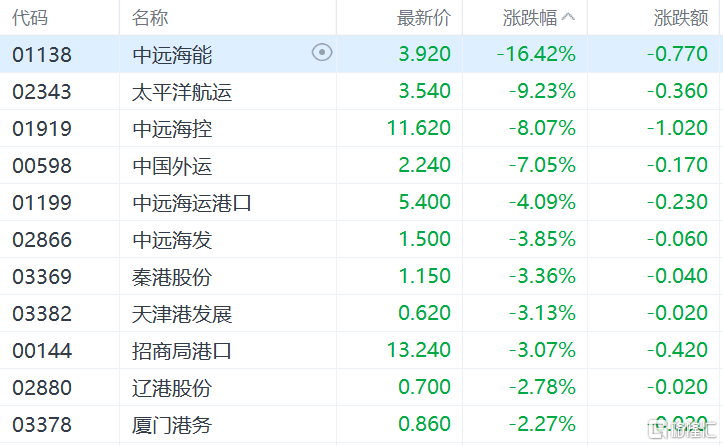
The performance of sporting goods was low, with Anta down 8.26%, Li Ning and Tebu down 7.26%, and Bosideng down 5.46%.
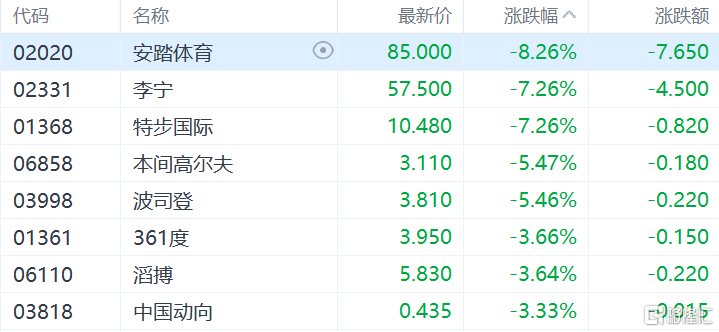
Automobile stocks fell collectively, with Great Wall Motor and ideal Automobile falling by more than 8%, Xiaopeng Motor by 7.25% and Geely by 6.9%.
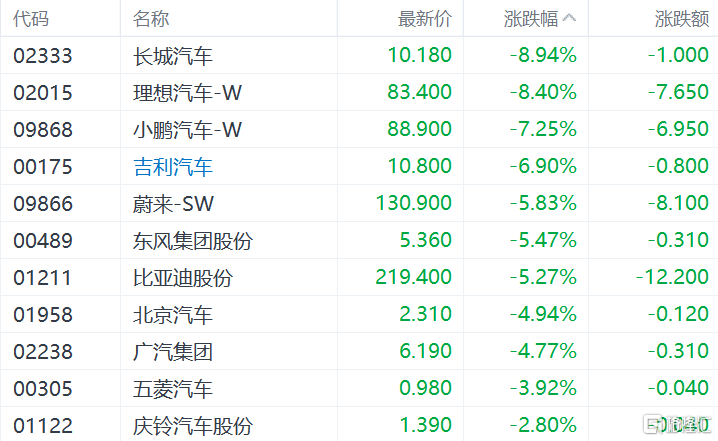
According to the federation of passengers, a survey in April showed that the retail targets of major manufacturers dropped sharply from the same period last year, with a preliminary estimate that the narrow passenger car retail market this month was about 1.1 million units, down 31.9% from the same period last year. The daily average of major manufacturers in the first and second weeks of retail is-32% and-39% respectively compared with the same period last year, and the car market has declined greatly due to the impact of stagnant production and terminal store closure.
Big financial stocks plummeted. Among Chinese brokerages, China Merchants Securities fell by more than 11%, China International Capital Corporation and Guangfa Securities fell by more than 6%, and Citic Construction Investment, Haitong Securities and Huatai Securities fell one after another.
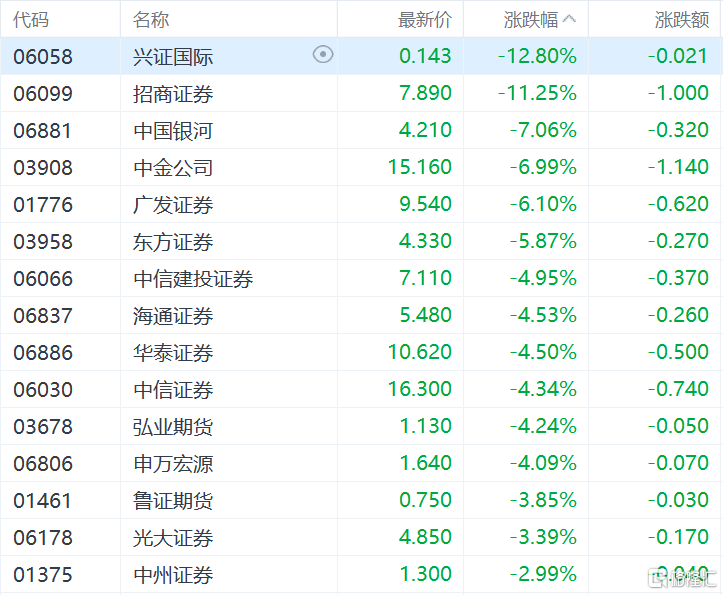
Among the insurance stocks, Xinhua Insurance fell nearly 13%, China Taiping fell 7.36%, and China Pacific Insurance and China Life Insurance fell more than 4%.
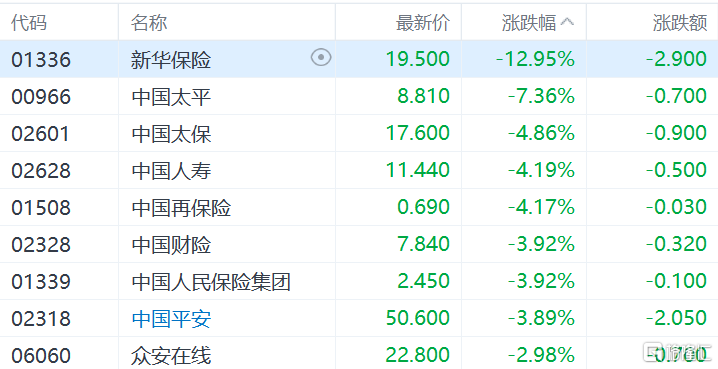
On the news side, Xinhua expects net profit attributable to parent shareholders to be Rmb1.261 billion-1.892 billion in the first quarter, down 70 to 80 per cent from a year earlier. Credit Suisse pointed out that due to the weakness of the stock market during the period, domestic peers are expected to face similar profit pressure, but to a lesser extent.
Steel stocks fell, Angang shares fell more than 12%, Xiwang Special Steel fell more than 9%, Chongqing Iron and Steel shares fell 7.56%, Maanshan Iron and Steel shares fell 5.9%.
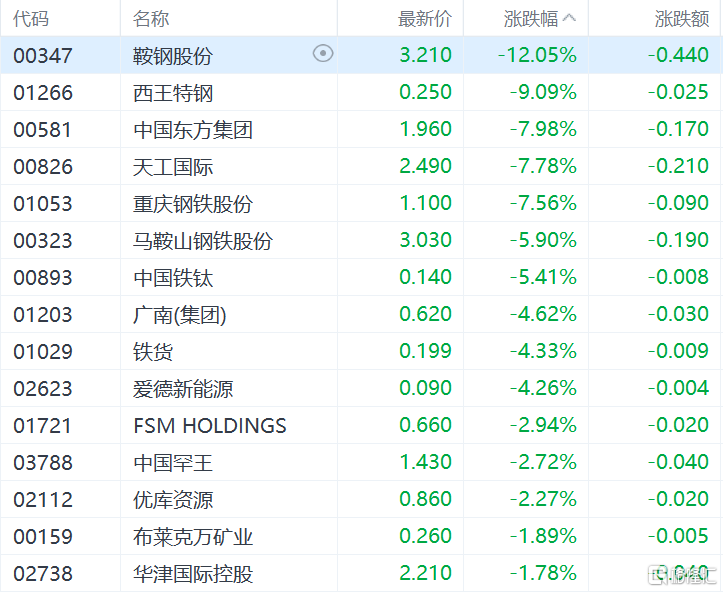
In the first quarter, actual steel consumption in the domestic major steel industry fell 5% compared with the same period last year, including 7% in the construction industry and 2% in the manufacturing industry. In the same period, China's apparent steel consumption was about 235 million tons, down 9.5 per cent from the same period last year. China will continue to implement the crude steel production reduction policy in 2022 to ensure a year-on-year decline in crude steel production, the National Development and Reform Commission said on April 19.
Coal stocks fell, Mongolian coking coal fell by more than 11%, Yitai coal fell by more than 9%, Yanzhou Coal Australia and Shougang fell by more than 8%, Yanzhou Mining and China Coal Energy fell by more than 7%.
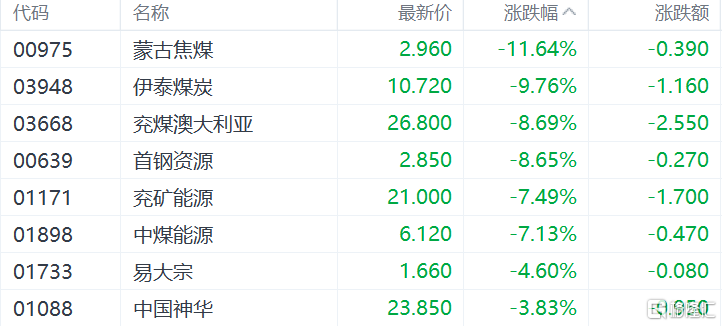
Today, there was a net inflow of HK $933 million, including HK $135 million from Hong Kong Stock Connect (Shanghai) and HK $798 million from Hong Kong Stock Connect (Shenzhen).
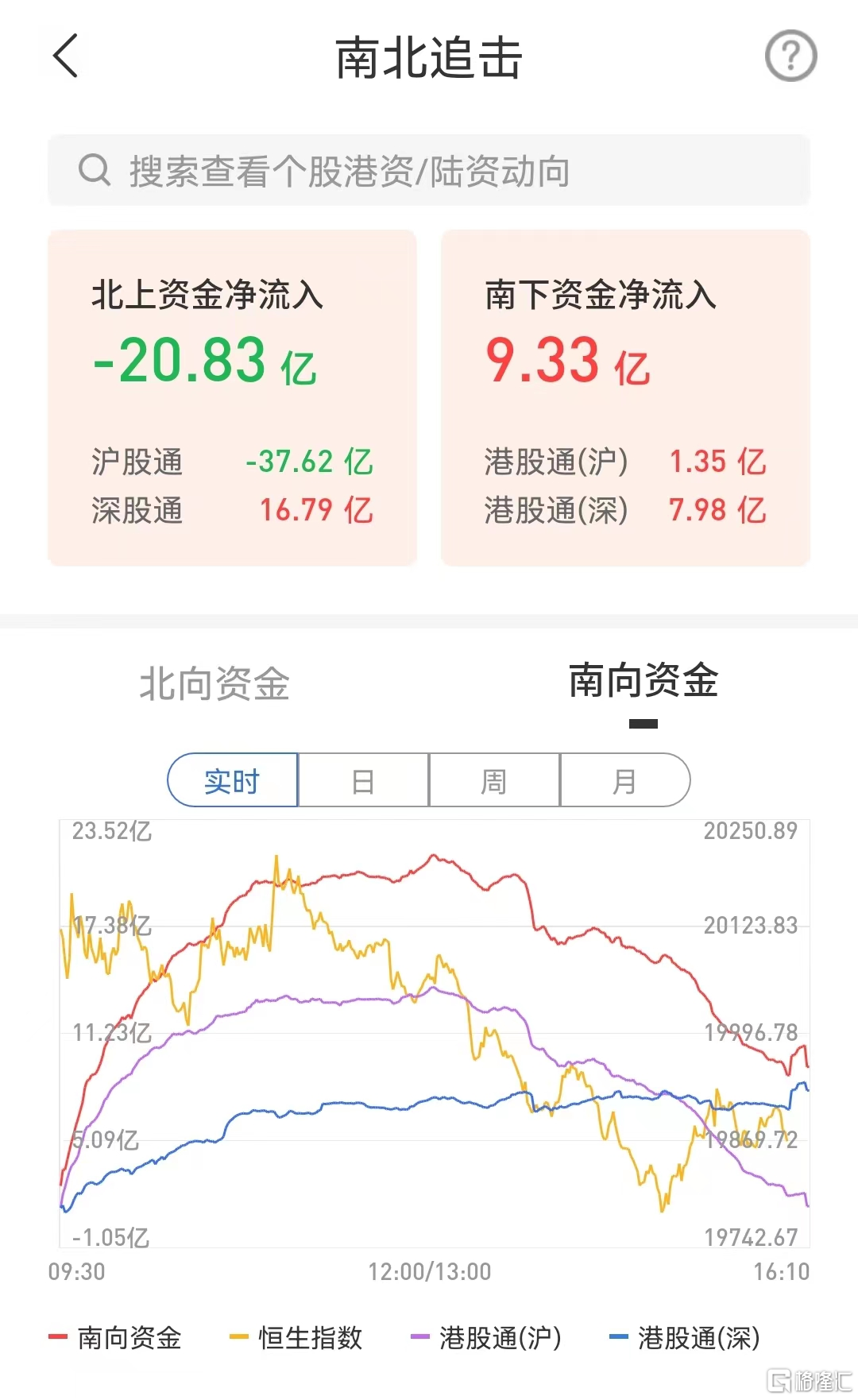
Looking to the future, China International Capital Corporation said that the market is expected to continue to consolidate in the short term until there are more supportive actions and catalysts. In the long run, the favorable policy environment and low valuation level in China will still bring more opportunities to the Hong Kong stock market. On the sector side, it is recommended to focus on high dividend targets and low valuation targets in the short term, such as some financial, telecommunications and energy sectors. The high-quality growth stocks with a large decline in the previous period are also worthy of attention. In addition, with the easing of the epidemic in Hong Kong, the targets of local consumption and finance in Hong Kong are also worthy of attention.



